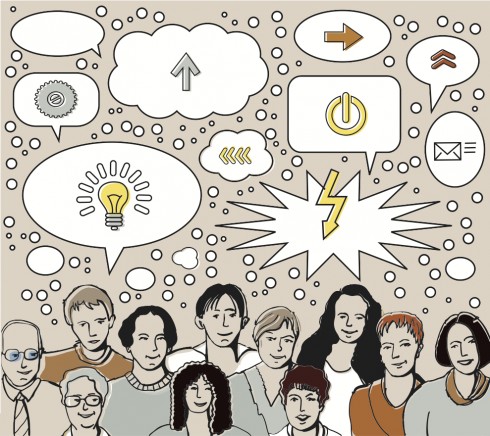
I recently read an article in the New York Times by Richard A. Friedman, a professor of clinical psychiatry and the director of the psychopharmacology clinic at the Weill Cornell Medical College, that really struck a chord with me. I have ADHD and so does my newly teenage daughter, so it’s something I think about a lot. In “A Natural Fix for ADHD,” Friedman hit on a lot of important points, like:
Recent neuroscience research shows that people with ADHD are actually hard-wired for novelty-seeking—a trait that had, until relatively recently, a distinct evolutionary advantage. Compared with the rest of us, they have sluggish and underfed brain reward circuits, so much of everyday life feels routine and understimulating.
To compensate, they are drawn to new and exciting experiences and get famously impatient and restless with the regimented structure that characterizes our modern world. In short, people with ADHD may not have a disease, so much as a set of behavioral traits that don’t match the expectations of our contemporary culture.
Although I love that he wants to remove the “disease” label from ADHD, as the mom of an adolescent with ADHD, a phrase like “hard-wired for novelty-seeking” frightens me. As my daughter and her peer group get older, I’m learning there’s a whole new level of things to be concerned about, like risky sexual behavior, destructive decision making, and overdoses of prescription and nonprescription drugs, including ADHD drugs.
I’m not saying that all ADHD drugs are bad. Although in general my last choice for my daughter or myself would be psychostimulants, there are times when people are really suffering—failing in school or in life—and drugs are the only option. Even so, I strongly believe that medication does not fix the problem in the long term. The way to do that—like with any rewiring situation—is to give people with ADHD the tools they need. Medication is a Band-Aid, not a cure, and the more schools and doctors recommend it, the worse it is for children.
But not all of the news is gloom and doom. Friedman reports that many people “grow out” of ADHD, which I see as another argument for providing tools and not just chemicals to prepare children to navigate each stage of life. Here are some he suggests:
First, we should do everything we can to help young people with ADHD select situations—whether schools now or professions later on—that are a better fit for their novelty-seeking behavior, just the way adults seem to self-select jobs in which they are more likely to succeed.
In school, these curious, experience-seeking kids would most likely do better in small classes that emphasize hands-on learning, self-paced computer assignments and tasks that build specific skills. This will not eliminate the need for many kids with ADHD to take psychostimulants. But let’s not rush to medicalize their curiosity, energy and novelty-seeking; in the right environment, these traits are not a disability, and can be a real asset.
So if we’re navigating these challenges, the main thing is to find a support system and doctors that share our beliefs and recognize what is right for each individual. As I often say: Follow the signs, listen to your gut, and believe instead of doubt—because there’s no one path for everyone, but each of us has a path. How can Rewire Me help you find yours?

Rose Caiola
Inspired. Rewired.
Click here to find out about Rose’s thoughts on wellbeing and health


1 Comment